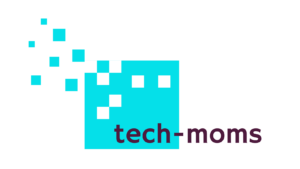Competency-based education (CBE) provides a dynamic approach to learning that prioritizes mastery of skills and knowledge over traditional time-based assessments. As the modern workforce continues to evolve, CBE is gaining traction for its ability to effectively prepare students for the challenges and opportunities in various professional fields. One crucial factor for the success of competency-based education is the integration of real-world experiences, enabling learners to connect theoretical concepts to practical application.
At Newlane University, we recognize the essential role of real-world experiences in competency-based education. Our online programs are designed to provide learners with opportunities to engage with real-world scenarios, simulate professional challenges, and apply their acquired skills and knowledge in authentic contexts. By incorporating these experiences into our curriculum, we equip students with the tools to not only excel academically but also adapt and succeed in the ever-changing professional landscape.
In this blog post, we’ll explore the ways in which Newlane University integrates real-world experiences into its competency-based education programs, highlighting different types of experiences and explaining how they contribute to student success. We’ll also discuss the benefits of incorporating real-world experiences into the learning process, preparing students for a seamless transition into the workforce and fostering a commitment to lifelong learning.
Types of Real-World Experiences in CBE Programs
Incorporating real-world experiences into competency-based education programs requires a diverse range of learning opportunities that enable students to apply their skills, knowledge, and critical thinking abilities in authentic contexts. The following are different types of real-world experiences that can be integrated into CBE curricula:
1. Projects and Case Studies: Engaging students in project-based learning or case study analysis allows them to approach real-world problems, devise solutions, and, ultimately, apply their acquired knowledge in a practical context. These hands-on learning experiences foster critical thinking and problem-solving skills that are essential for success in the workplace.
2. Simulations and Virtual Labs: Simulations and virtual labs provide students with opportunities to practice their skills in a controlled, risk-free environment. These interactive learning experiences expose learners to realistic scenarios that closely resemble professional situations, fostering a deeper understanding of the concepts being taught.
3. Internships and Field Experiences: Participating in internships or field experiences offers students the chance to immerse themselves in professional settings and gain valuable insights into industry practices. These opportunities help students develop networks, improve teamwork, enhance communication skills, and acquire the practical knowledge necessary for career success.
4. Collaborative Learning: Engaging students in collaborative learning experiences, such as group projects or discussions, fosters teamwork, communication, and interpersonal skills, which are vital for success in today’s professional landscape.
How Newlane University Incorporates Real-World Experiences
At Newlane University, our competency-based education programs are designed to integrate real-world experiences within our innovative online learning platform. Through various learning methods, we ensure that our students gain practical knowledge and develop essential skills for success in today’s workforce.
1. Project-Based Learning: Our courses incorporate project-based learning experiences that challenge students to address real-world problems and develop innovative solutions. By applying their skills and knowledge in these contexts, learners gain a deeper understanding of course material and develop critical-thinking abilities necessary for professional success.
2. Interactive Simulations and Virtual Labs: We provide students with access to interactive simulations and virtual labs, enabling them to practice skills and techniques in realistic environments. These engaging educational experiences simulate professional scenarios, helping students grasp theoretical concepts and apply their learning in authentic situations.
3. Industry Partnerships: Through collaboration with industry partners, our programs offer students opportunities to participate in internships or field experiences related to their field of study. By gaining hands-on experience in professional settings, learners develop a greater understanding of industry practices, enhance their skillsets, and expand their professional networks.
4. Peer Collaboration: Our online learning platform facilitates collaborative learning experiences, such as group projects or discussions, allowing students to develop teamwork, communication, and interpersonal skills that are crucial for workplace success.
Benefits of Integrating Real-World Experiences into CBE Programs
Incorporating real-world experiences into competency-based education programs serves to enhance student success on multiple levels. Here are some key benefits of incorporating these experiences into CBE curricula:
1. Seamless Transition into the Workforce: By engaging with real-world scenarios and professional challenges throughout their education, students become better equipped to adapt to the expectations and demands of the workplace.
2. Enhanced Skill Development: Real-world experiences reinforce theoretical knowledge and offer opportunities to practice and refine critical thinking, problem-solving, communication, and teamwork abilities essential for success in one’s chosen career.
3. Personal and Professional Growth: Hands-on experiences stimulate self-reflection, autonomy, and adaptability, fostering personal and professional growth among learners.
4. Lifelong Learning: Real-world, competency-based education experiences cultivate a commitment to continuous learning and improvement, equipping students to confront future challenges and maintain relevance in an ever-evolving professional landscape.
Conclusion
By integrating real-world experiences into competency-based education programs, Newlane University not only provides learners with a solid academic foundation but also equips them with the practical skills and knowledge essential for thriving in today’s workforce. Through innovative online learning experiences, such as project-based learning, simulations, industry partnerships, and peer collaboration, we prepare our students for a seamless transition into the professional world and foster a commitment to lifelong learning.
If you are eager to embark on an educational journey that combines academic excellence with hands-on, real-world experiences, Newlane University’s competency-based online degree programs are tailored to meet your unique needs and aspirations. Reach out to our team today to learn more about our innovative online platform and academic offerings designed to help you unlock your potential and succeed in today’s competitive professional landscape.




